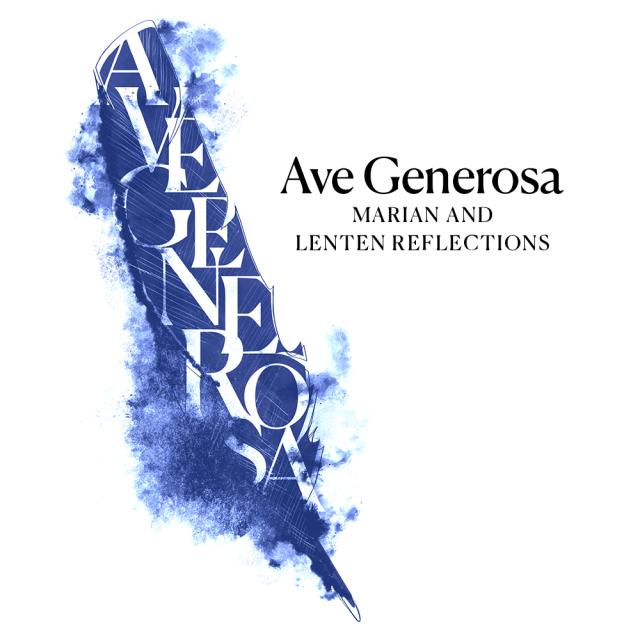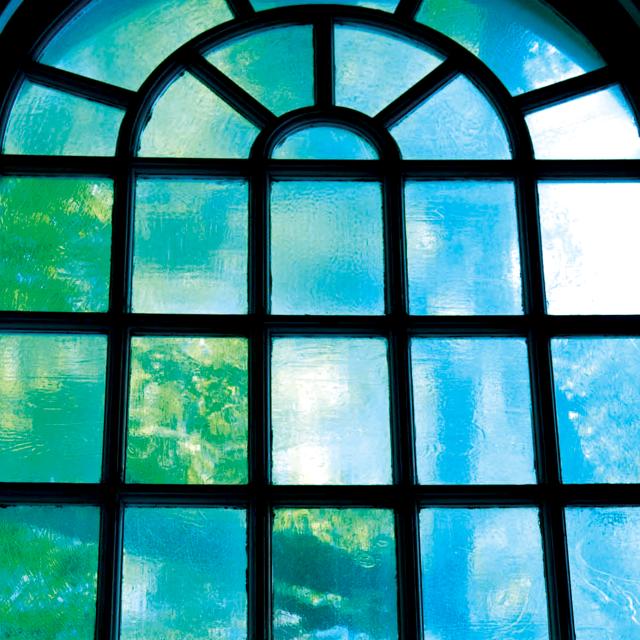Author Pico Iyer on Finding Peace in Our Divided World

In an exclusive interview, the renowned writer reflects on his quest to hold onto hope — in even the most difficult times.
As Americans head into a turbulent election season, in a society that feels irreparably fractured, how can we imagine a different way forward? How can we serve as instruments of peace?
On September 22, journalist and author Pico Iyer opened the 2024-25 season of Trinity Talks, launching a series of conversations with six distinguished writers that get to the heart of this critical issue. An Oxford-educated secular writer with a keen interest in spiritual matters, Iyer has spent years traveling with the Dalai Lama, practicing silence at a small Benedictine monastery in California, and making pilgrimages to sacred sites across the globe. All his travels have been driven by the same burning desire: to see the world exactly as it is, without losing faith in its potential.
In his recent bestseller, The Half Known Life: In Search of Paradise, Iyer writes about visiting some of the holiest cities on the planet, places often marred by political and religious discord. Despite numerous encounters with chaos and conflict, Iyer steadfastly refuses to abandon the idea that we can, as the Irish poet Seamus Heaney writes, make “hope and history rhyme.”
“History has left all of us with wounds, fears, perhaps traumas; yet a life without hope is no life at all,” Iyer said. “How can we find faith and even love while living in a decidedly imperfect and mortal world?” For Iyer, the key is a clear-eyed, grounded, yet unrelenting optimism about the possibility of finding paradise here on earth.
You’ve visited many holy places in your life – in your book, you write about traveling to Mashhad, Varanasi, Jerusalem. What draws you to these sacred spaces?
I travel, deep down, to be expanded, instructed and turned upside down; to be inspired and brought back to the essential questions and situations it’s so easy to sleepwalk past in my everyday life. Ever since I first took to the road, I’ve been drawn to places that speak to the spirit and that remind me of what matters in the world, beyond all our chit-chat and all the increasing distractions of the day.
This has always seemed an essential longing — in my teens I was seeking out Notre Dame and the churches of South America and soon I was traveling to Tibet and giving up my exciting job in New York City to live in a temple in Kyoto — but as the world speeds up and more and more of our days get filled up with trivia and what happened six seconds ago, it seems ever more important to root ourselves in what stands beyond time and space and deeper than our tweets and theories.
People sometimes ask me why I spend so much time with monastics, and I tell them it’s because I want to learn how to live, how to love, how to die and most of all, perhaps, how to live amidst the dying. When my car’s got problems, I go to the Toyota mechanic; when I have questions about life, I seek out monks and nuns.
In an age when the passing preoccupies us so much, I want to live as much as possible amidst what doesn’t fade.
Why is it that many of these beautiful, holy places in our world are also places of conflict?
For the sad but inescapable reason that your notion of heaven will never be mine. Jerusalem is a particularly poignant and powerful example: Almost nowhere on earth has stirred and moved me so much as the Old City in Jerusalem, and even though I’m not Christian or Jewish or Islamic by birth, I feel pulled towards that powerful center almost irresistibly.
Sometimes I’ll be walking along the street in Japan and I’ll feel a magnetic summons towards Jerusalem. And when I’m there, I always stay at one of the Christian hospices and head out before dawn each morning to the Church of the Holy Sepulcher just to sit in quiet before a flickering candle in a broken cave.
I love the fact, too, that few people go to Jerusalem casually, which means that even my fellow travelers in the Old City are often pilgrims, taking great risks or making great sacrifices to be in the holy places. Everyone there seems moved by spirit and has something to teach me.
Yet, for centuries and more, Jerusalem has been an epicenter of conflict, simply because so many there so devoutly hold to the teachings of different holy books.
History has left all of us with wounds, fears, perhaps traumas; yet a life without hope is no life at all."
As I write, I have great faith in what the heavens bestow on us; but I am less confident about what we humans do with the heavens. Jerusalem is a treasure house of power and wisdom and depth, and yet we mortals are not always worthy of the treasures we have been given and sometimes complicate — or even deface — the sacred with our much less exalted ideas or notions of “us” and “them.”
I write about silence a lot because it seems a non-denominational space beyond our competing texts: Muslims and Christians and Jews may disagree about the words of their holy books, but I think all of them know and feel powerfully the beauty of prayer and worship.
What do you think humans are searching for when we imagine and long for paradise?
I think peace is perhaps what we all at heart long and ache for; once we have peace, contentment and inner health often seem to take care of themselves. But again, your idea of paradise is likely different from mine, and very often the paradises we discover on earth — a golden beach in Tahiti or the Seychelles — are not a paradise for the locals who are working round the clock to make us comfortable.
In other words, I think paradise is too often a projection taking us away from real life; and the only paradise I trust is one that is open to all and that can be found in the midst of real life.
I remember once standing by the Ganges in Varanasi; even as someone of Indian blood and Hindu descent, I felt completely freaked out by the chaos, the clamor, the dead bodies floating past, the fires to both north and south reducing other corpses to ash.
Suddenly two monks appeared — one American and one Tibetan — and the American monk said, “Isn’t this wonderful? It’s life and death and the whole human conundrum.”
He had found such clarity and calm in his spirit that he could find paradise right in the heart of the burning world.
I feel that’s our task on earth, whatever happens in the heavens; not to expect reality to conform to our needs or hopes, but to see that even in the midst of fallenness, there’s something we can trust and affirm.
What have your travels taught you about the possibility of finding paradise – in the afterlife or here and now?
Down the road from where I live in Japan, the temples of Kyoto often have words written on the ground at their entrance which, translated, mean “Look Beneath Your Feet.” In much the same way, over fifty years of regular talks and travels with the Dalai Lama, I’m struck at how he seems to find absolute joy and warmth wherever he is, even though he’s suffered more than anyone I know. He’s been propelled out of his homeland for sixty-five years, he saw his mother, thirteen of his siblings and his tutors die, he’s regularly called “a wolf in sheep’s clothing” by the government of the largest nation on earth, and yet much of what he’s known for is his robust confidence, his constant smile, and his infectious laugh.
I’m not in a position to talk knowledgeably about the afterlife, but I’m moved that many of my Christian friends treat everyone who appears at their doorstep as they would Jesus and have a rare gift for finding the divine in everything. As, perhaps, with the most selfless souls in any tradition.
As Henry David Thoreau wonderfully reminded us, generations ago, he who has not found heaven here on earth may have a hard time finding it up above.
In my own case, I was living the life I might have dreamed of as a boy when I was in my twenties, in New York City; I had an apartment on Park Avenue, a 25th floor office in Midtown, an endlessly stimulating job covering world affairs for Time magazine, the most wonderful colleagues (and the chance to take my vacations, as I did, in Morocco and Bali and El Salvador).
And I left it all at 29 to live in a single room along the eastern hills of Kyoto without its own toilet or telephone or bed.
Thirty-seven years later, my wife and I share a two-room apartment in the middle of a completely featureless suburb not far away, for which we pay $500 a month in rent, living as students might. But it feels absolute paradise to me because our lives are uncluttered and there’s nothing we want that we don’t have.
At a temple down the road is a stone water-basin. When you put the characters around it together, it says, “What I have is all I need.” The rich man, as even a figure in Henry James says, is not the person with a lot of things, but the person who doesn’t hunger for anything more.
Your next book, Aflame, is about what you learned from practicing silence during your time in a Benedictine hermitage. How can silence help us prepare for (or discover) paradise?
In some ways, my next book is a companion-piece to The Half-Known Life. Some of us travel around the world in the hope of finding paradise in the place across the mountains or that undiscovered beach on a remote island. But what moves me about my Benedictine monk-friends, with whom I’ve made more than 100 retreats over 33 years, is that, like all classic monks, they have found paradise exactly where they sit. Their cloister is a model of paradise and they minister to everyone they meet as angels might (mortal angels, but nonetheless moving angels).
Of course the liturgy and lectio divina and the Psalms and the Bible are intrinsic to their paradise (as they were for me during fourteen years of Anglican schooling); but insofar as silence is the place beyond all mortal words and ideas, I think they would recognize it as a kind of paradise. It’s the place where we hear something deeper than ourselves and, at its best, where we’re rooted in something far deeper and more lasting than our chatter or our personalities.
As Father Thomas Keating used to say, “Silence is God’s language. Everything else is a poor translation.”
Please register to join us for future Trinity Talks.






